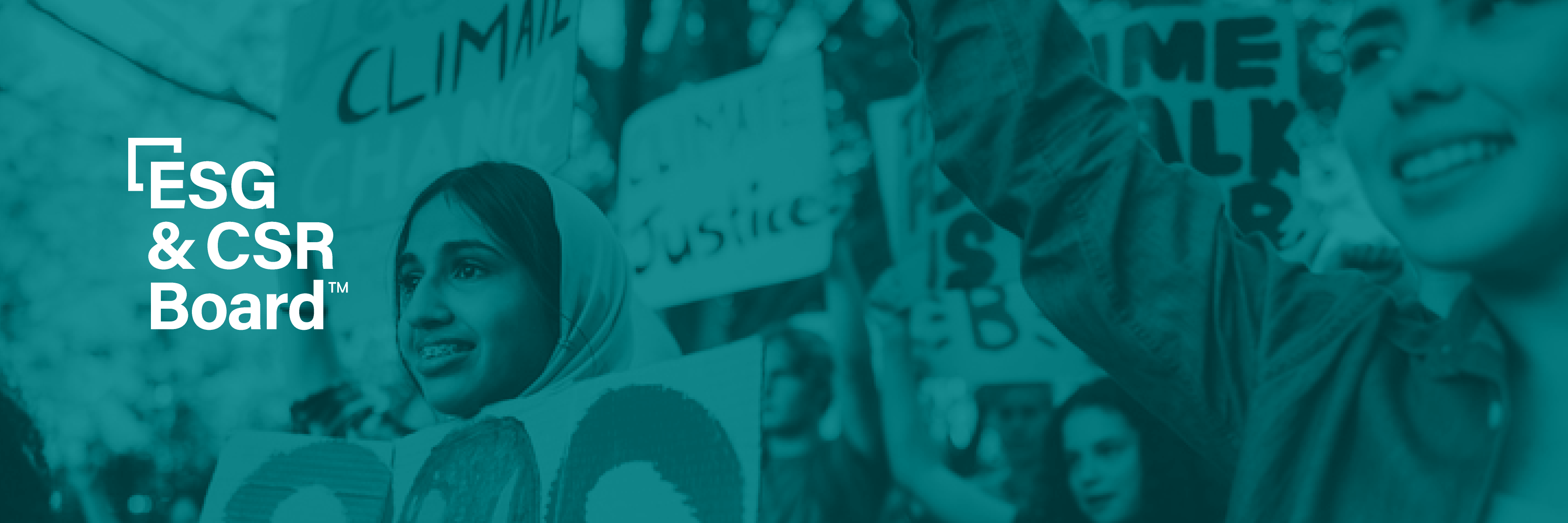Climate change is affecting each and every person. From record-breaking heat waves to prolonged drought periods and catastrophic storms, global weather extremes are occurring more frequently.
But these climate disasters aren’t impacting everyone equally. The burden of climate change is undeniably exacerbated for those who already face injustices and socioeconomic inequalities.
The B Corp Climate Collective, a global group of certified B Corporations working together on climate action, states the effects of climate change have a disproportionately negative impact on the historically underserved and marginalized — primarily people of color and low-income communities.
For example, in Southern Los Angeles, where 64% of households live below the poverty level, many residents in communities like Compton and Inglewood lack the resources needed to cope with urban heat waves. A recent USC study found that nearly three-fifths of households did not have access to air conditioning.
Additionally, USC reports that those living in California’s Bay Area Oil Corridor — predominantly low-income and communities of color — are most impacted by the close proximity to refineries and the petrochemical industry. These residents face a higher risk for cancer, heart disease, and respiratory ailments due to the degradation of air quality.
It’s clear that the climate crisis and social issues are deeply intertwined — this is where climate justice emerges.
The B Corp Climate Collective defines climate justice as a means of advancing climate solutions that link human rights and development in a human-centered approach by placing the needs, voices, and leadership of those who are most impacted at the forefront.
Enterprises working to mitigate the risks of climate change must ensure their sustainability strategies aren’t neglecting communities most vulnerable to climate disasters.
Where should you start in envisioning and building a climate justice plan?
The business case for climate justice
In a GreenBiz article, Terry F. Yosie, Former President and CEO of the World Environment Center, said corporations can and should be involved in environmental justice.
Terry argued that enterprises are among the most resilient of all major institutions and have a duty to match their business capabilities with societal needs.
He wrote, “U.S. corporations have both a unique opportunity and a responsibility to reset their and the nation’s course on social and environmental justice.”
Furthermore, Terry explained that as society’s values grow and evolve, major companies will aim to communicate their support for such priorities, and environmental justice represents an increasingly prominent expression of modern values.
During the ESG & CSR Board panel discussion on enterprise climate action, Sharon Vidal, Illumina’s Senior Director of Corporate Social Responsibility and Sustainability, touched on this trend.
Sharon discussed some of the increased expectations for corporations today and highlighted the 2022 Edelman Trust Barometer — an annual global trust and credibility report.
The study found that we are seeing a greater expectation of corporations to lead in trust, as trust in government and media continues to spiral. Additionally, among those surveyed, 80% said they’d invest money based on the beliefs and values of a business.

Sharon said, “They’re looking and expecting organizations to say more on social impact topics and to do more.”
But the role an enterprise will play in climate justice — or any social cause — will depend on the unique values and capabilities of the company.
Connecting climate justice strategies to your brand mission
When it comes to getting started in climate justice, Sharon emphasized the importance of connecting strategies to your company’s core mission and values.
Illumina’s mission is to improve human health by unlocking the power of the genome, and Sharon said, “There’s a strong connection between environmental health and human health.”
As a result, this is an area the company leans into. Sharon said CSR efforts are largely focused on increasing health access and equity. Additionally, the company sets aside philanthropic donations to invest in environmental justice initiatives.
Building a mission-driven climate justice plan has also been a focus at PayPal, according to Kristina Friedman, Head of Global ESG Strategy.
During the ESG & CSR Board panel, Kristina said, “We want to be responsible stewards of the planet, of course, but we also want to understand how climate change impacts our mission in business.”
As a financial technology company, Kristina explained that PayPal’s goal is to serve the underserved. Often, those individuals live in rural communities or developing markets and can be agriculturally dependent — the same people who have already been harmed by climate consequences.
Kristina said PayPal took a step back to determine how they could serve both purposes by asking, “How can our mission to serve the financially underserved actually help build the climate resilience of individuals around the world?”
PayPal helped fund and lead the formation of a task force called Digital Finance for Climate Resilience, which leverages digital finance technologies to reduce cost, expand reach, and improve the usability of climate resilience solutions.
Separately, Kristina said PayPal joined the Catalyst Fund — a cohort focused on investments in global companies working to create innovative climate resilience solutions. Last year, PayPal invested in seven companies that are helping to move that needle, according to Kristina.
“We now have a really thoughtful and deliberative way of identifying climate impact projects around the world,” Kristina said.
Additionally, PayPal also partners with organizations such as Race to Resilience and World Resources Institute, among others.
Learning from ESG and sustainability leaders
It’s clear that companies can make significant strides in climate justice, and in a way that speaks to their core values and capabilities.
Sharon said, “I think that’s a unique place that a corporation, no matter what industry you’re in, can lean into the piece that matters most to the kind of sector that you’re in and make a difference.”
Still, climate justice is a forward-leaning topic and many large companies have a long way to go in this journey. Advice from leaders like Sharon Vidal and Kristina Friedman can be an invaluable tool in kicking off your own strategy.


